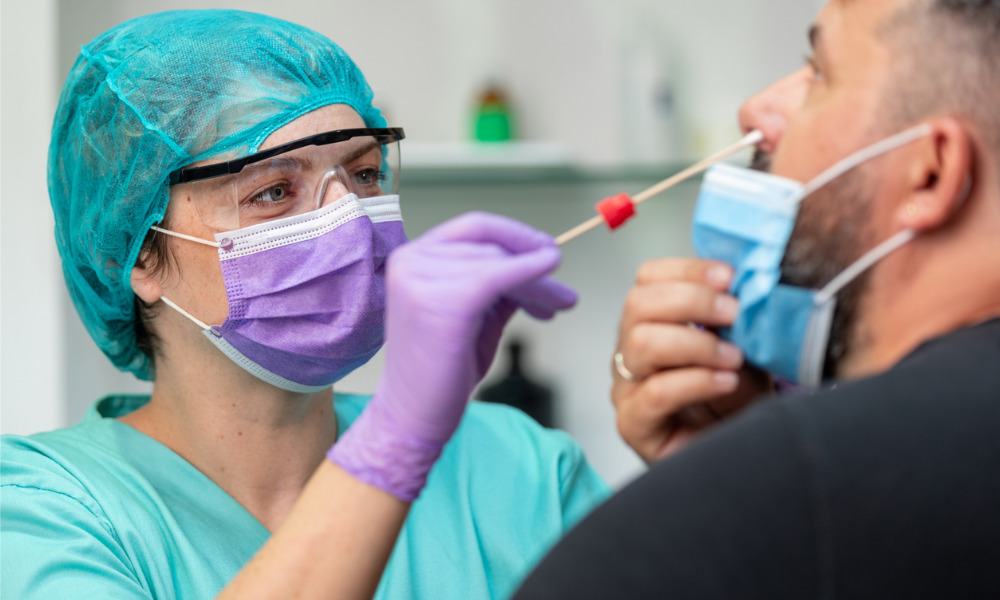
CCF considers whether swab tests violate right against unreasonable search or seizure

Mandatory COVID-19 testing will likely be constitutional if the government is careful that the chosen test minimally impairs the right against unreasonable search or seizure, says Toronto criminal defence lawyer Ryan Handlarski.
An article by the Canadian Constitution Foundation considered whether the imposition of a mandatory COVID-19 testing regime would breach s. 8 of the Canadian Charter of Rights and Freedoms, which safeguards the right of security against unreasonable search or seizure. Handlarski suggested that such mandatory testing would probably not violate s. 8 if it is “carefully crafted to protect rights.”
Mass mandatory swab tests, especially if imposed at an international border where there is a limited expectation of privacy, may potentially be held reasonable if the government’s objective of limiting the spread of COVID-19 prevails over the individual’s interest in being left alone, said the article.
On the other hand, if the swab testing is held to be unreasonable, s. 1 of the Charter provides that Charter rights are not absolute and are subject to reasonable limitations by the government, which means that the government may possibly justify the swab testing in light of the COVID-19 emergency, Handlarski said.
The article cited R. v. Oakes, 1986 CanLII 46 (SCC), [1986] 1 SCR 103, which laid down the criteria for determining whether the government’s limitation on Charter rights is reasonable and demonstrably justified. The article said that the criteria of a pressing and substantial objective and a rational connection between the means to achieve the objective and the limit of the right, can both be easily shown in the context of the COVID-19 crisis.
The government should, however, be cautious about establishing a mandatory testing regime which respects the other two criteria, which are the minimal impairment by the chosen means of the Charter right and the overall proportionality between the benefits of the limit and its deleterious effects, said the article.
For minimal impairment, Handlarski suggested that the government utilize swab tests rather than extract blood from veins, given that case law supports that cheek swabs will not be considered very intrusive. Moreover, the government should refrain from keeping the sample to test it for other diseases or to decode its DNA, Handlarski said.
The article also brought up alternatives which may potentially be offered by the government to individuals who do not want to undergo testing. For those arriving in airports, for example, imposing a quarantine period may be an option, while for children about to return to school, permitting online learning may be a possibility.